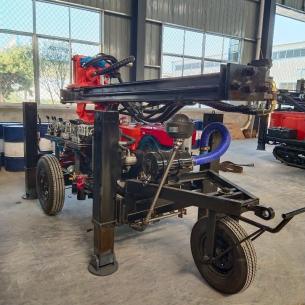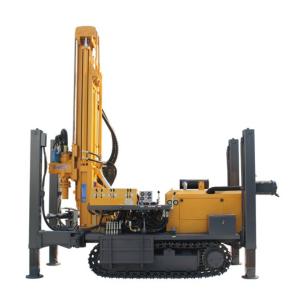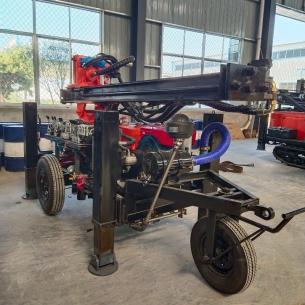What Is The Purpose Of Core Drilling?
If you work in construction, mining, or geological exploration, you've likely heard the term "core drilling." But what exactly is it, and why is it such a fundamental process across so many industries? At its simplest, core drilling is a precise and efficient method of drilling perfectly round holes through various materials. However, its true purpose goes far beyond just making holes.
The primary purpose of core drilling is to extract a cylindrical sample (a "core") from a solid material or to create precise, clean openings for utility installation and structural modifications without causing unnecessary damage.
The Two Main Purposes of Core Drilling Explained
We can break down the purpose of core drilling into two key categories: Analytical Sampling and Construction & Utility Installation.
1. Analytical Sampling: The Science of Exploration
Core drilling is the "eye" that probes the subsurface. Its purpose isn't drilling itself, but rather obtaining a raw sample.
Geological and Mineral Exploration: This is one of the oldest uses. Companies drill into underground strata and extract core samples of rock and sediment. Geologists analyze these samples to determine the presence and concentration of mineral components, assessing the rock's strength, stability, and properties for mining operations.
Geotechnical Site Investigation: Before any major construction project begins, engineers need to understand the ground conditions.
2. Construction and Utility Installation: The Art of Precision
In this application, the purpose shifts from the sample to the hole. The core drilling process creates clean, accurate openings with minimal vibration and disturbance.
Creating Openings for Utilities: This is the most common purpose seen on construction sites.
Structural Modifications: When adding new windows, doors, or ventilation shafts to an existing concrete or masonry structure, core drilling provides a non-destructive method to make the initial openings.
Anchor Bolt and Rebar Installation: For securing new structural elements to existing concrete, precise holes are needed for epoxy-set anchor bolts or reinforcing rebar, which core drilling provides perfectly.
Why is the Core Drilling Method Preferred?
You might wonder, why use core drilling instead of other methods like hammer drilling or punching? The benefits are clear:
Precision: Creates perfectly round holes of exact diameters.
Cleanliness: Produces minimal dust, especially when paired with water (wet drilling), and leaves a smooth finish.
Non-Destructive: Causes no micro-fractures or structural vibrations that could compromise the integrity of the surrounding material.
Efficiency: Modern diamond core drilling rigs with diamond-impregnated bits can cut through reinforced concrete, asphalt, and hard rock with remarkable speed.
Choosing the Right Core Drilling Rig is Key
The purpose of your project will directly determine the type of core drill rig you need. Key factors to consider include:
Power Source: Electric, Hydraulic, or Pneumatic rigs offer different power levels and are suited for different environments (indoor vs. outdoor).
Size and Portability: From small, hand-held drills for minor jobs to large, track-mounted rigs for heavy-duty, deep-hole drilling.
Capacity: The diameter and depth of the holes you need to drill.
Material: The hardness and composition of the material you need to drill through (e.g., reinforced concrete requires a powerful rig and diamond bits).
At wogong, we provide a full range of high-performance, reliable core drilling rigs and equipment for every purpose, from geological exploration to precision construction tasks. Our experts can help you select the perfect machine for your specific application.
Ready to find the ideal core drilling solution for your project?
Contact Our Experts for a Free Consultation.



